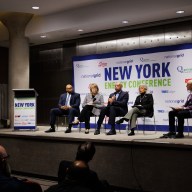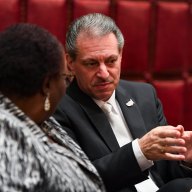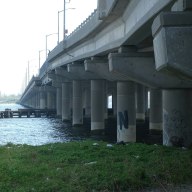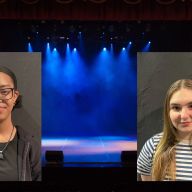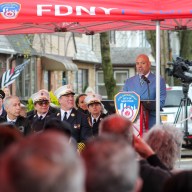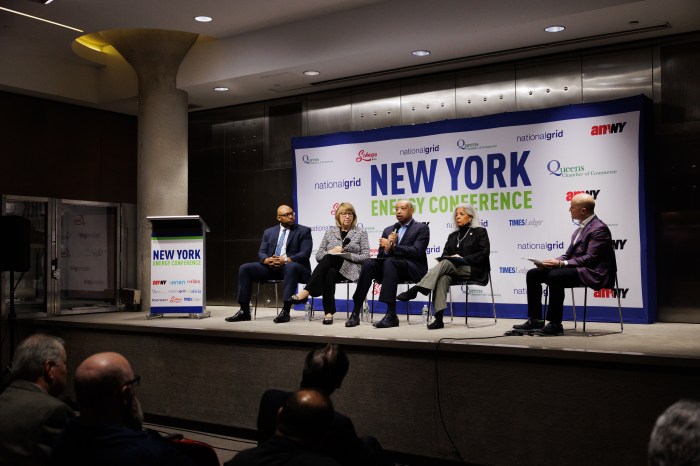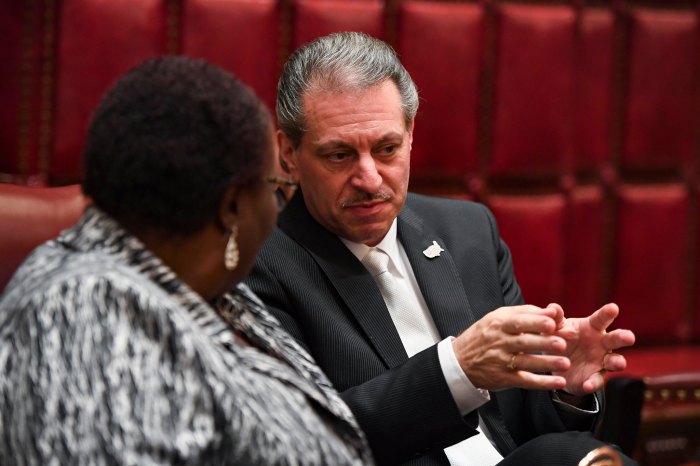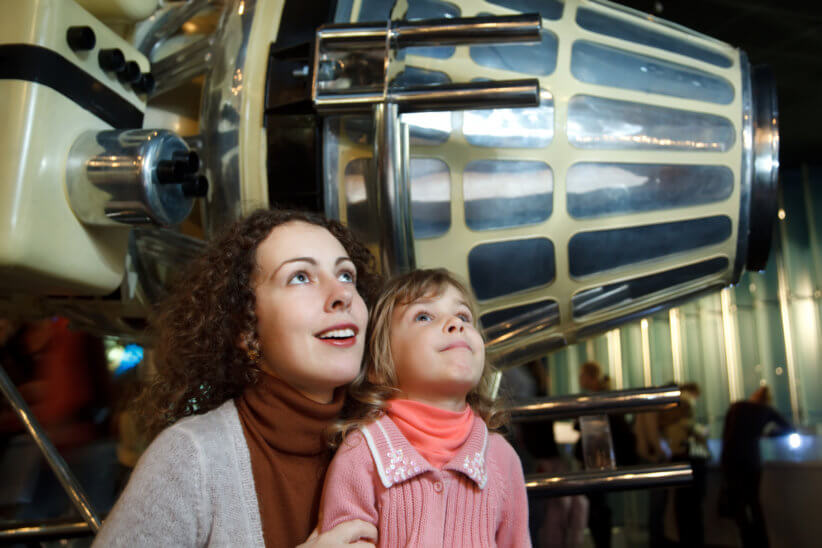By Sarina Trangle
Forget air rights — below-ground space may now be the most contentious aspect of the Queens real estate market.
State Sen. Tony Avella (D-Bayside) and several Queens civic groups did not wait for the mayor to unveil his administration’s affordable housing blueprint Monday to denounce a provision of the plan that may legalize basement apartments and other self-contained units within homes.
Flanked by neighborhood association leaders, Avella said last Friday that efforts to authorize below-ground housing were unrealistic and would pose safety hazards and strain communities’ resources.
“To change the zoning code of the entire city of New York to allow basements to become legal would be a monumental task,” Avella said. “It took eight years to do one rezoning proposal when I was in the City Council …. I don’t see how the mayor can think he can do this either by executive order or it’s going to be a simple thing to accomplish.”
Queens Civic Congress President Richard Hellenbrecht said fires in such units had proven deadly and that doubling the capacity in single-family districts would overburden the sewage, garbage and school system.
“The one-family districts that would become all of a sudden two-family districts — that’s not what people paid lots and lots of money for over the years,” said Henry Euler, first vice president of the Auburndale Civic Association. “There’s no guarantee that these units will be affordable either. People who own the home can charge any rent they want.”
De Blasio’s housing plan did not offer many details about how he intends to deal with unsanctioned housing units. His plan said, “The city will work with the relevant stakeholders to examine how best to bring these units into the regulated housing system, including a review of other cities’ best practices to bring fresh ideas to the discussion.”
Basement Apartments Safe for Everyone, a coalition pushing for the city to authorize safe unsanctioned homes by adding an accessory dwelling unit to its zoning code, is spearheaded by the Jackson Heights-based Chhaya Community Development Corp. BASE argues that authorizing building apartments would ensure they meet safety standards and emergency responders are aware of how buildings are being used.
Drew Goldsman, a project manager at Chhaya, said the new zoning category would improve an unaffordable housing market for those with a limited income and offer relief to homeowners struggling to pay their mortgage.
“The mayor followed up on his campaign promises,” Goldsman said. “We are very excited to work with the mayor on continuing to research the issues and come up with a creative solution.”
A report BASE released in conjunction with Pratt Center for Community Development in 2008 notes that nearly 40 percent of all new housing built in the four outerboroughs between 2000 and 2005 is believed to have been created without going through processes mandated by the city.
Researchers said Queens has the most unregulated housing. The report ranked neighborhoods by their stake in the illegal home market, with South Jamaica and Hollis coming in third in the city after the Castle Hill-Soundview section and Eastchester-Woodlawn areas in the Bronx. , Queens Village and Bellerose were ranked fifth; , Kew Gardens, Richmond Hill and Woodhaven sixth; and South Ozone Park and Howard Beach seventh.
The report noted that taking a census of the illegal housing market is difficult because tenants may face eviction and homeowners can be fined up to $1,000 a day or $25,000 total for unauthorized units.
The accessory dwelling unit proposed in the BASE report would authorize units that were more than 50 percent below grade level as long as they had enough light and air and met standards outlined by architects, engineers and planners specifying what size windows could constitute an exit during fires and emergencies.
Reach reporter Sarina Trangle at 718-260-4546 or by e-mail at strangle@cnglocal.com.








